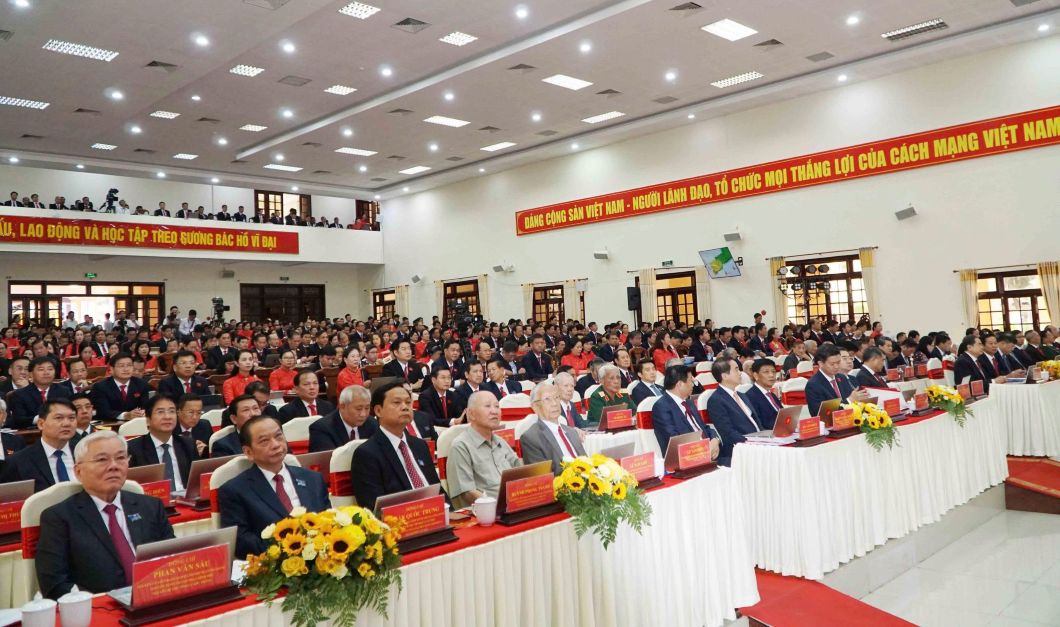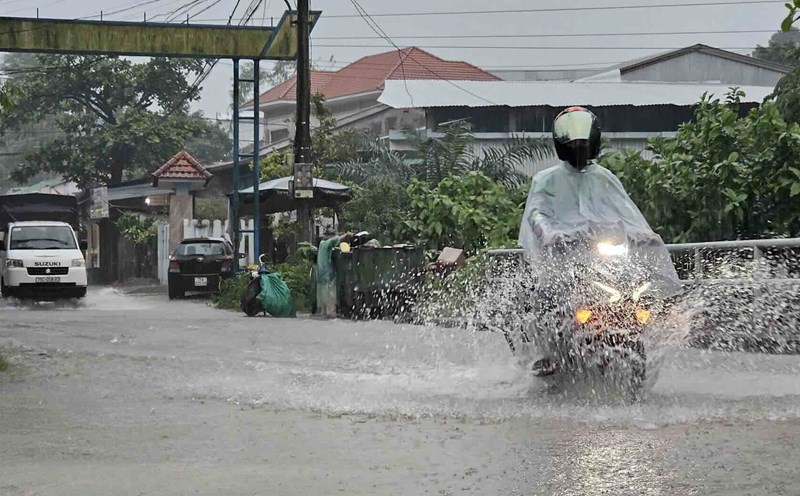Speaking at the 1st Congress of the Can Tho City Party Committee, term 2025 - 2030, Mr. Nguyen Van Phong - City Party Committee member, Deputy Head of the Standing Committee of the City Party Committee - emphasized: in the context that Can Tho has just completed the arrangement of administrative units, the city is identified as the center and driving force of the Mekong Delta according to Resolution No. 59-NQ/TW dated August 5, 2020 of the Politburo (term XII); Resolution No. 45/2022/QH15 dated January 11, 2022 of the National Assembly and Resolution No. 98/NQ-CP dated August 30, 2021 of the Government. To achieve this goal, the cadre team is identified as a decisive factor, playing a central role in realizing the Resolution of the City Party Congress for the 2025 - 2030 term.
Regarding the current situation of the team, Mr. Phong said that after the merger of Can Tho City, there will be key leaders including Secretary, Deputy Secretary of the City Party Committee; Chairman and Vice Chairman of the People's Council; Chairman and Vice Chairman of the People's Committee; Head of the delegation and Deputy Head of the full-time delegation of the National Assembly Delegation.
The Executive Committee of the Commune Party Committee has 3,108 comrades, the Standing Committee has 1,043 comrades. Commune-level management leaders include 103 Secretaries, 206 Deputy Secretaries of the Party Committee; 103 Chairmen, 103 Vice Chairmen of the People's Council; 103 Chairmen and 207 Vice Chairmen of the People's Committee.
The block of specialized agencies, advisory services, public service units under the City Party Committee, Vietnam Fatherland Front, organizations, departments, branches, sectors and the City People's Council currently has 117 leaders. The whole city has about 63,000 cadres, civil servants, public employees and workers.
After the merger, the Can Tho staff has made a clear step forward. The quality is increasingly improved, the structure is more reasonable in terms of age, gender, and profession; professional qualifications and basic political theory to meet the tasks. Most cadres have a strong and exemplary political stance, dare to think, dare to do, dare to take responsibility for the common good. Training and creating resources for young, female and ethnic minority cadres has been given attention and initially promoted effectively. The evaluation of cadres is increasingly associated with the results of performing tasks, creating motivation to strive and train.
However, in reality, there are still limitations. Cadre capacity among all levels and fields is not uniform; some departments are still limited in leadership and management skills, and their ability to adapt to digital transformation and administrative reform. Consulting work is sometimes not proactive and creative; the arrangement and use of staff in some places is not reasonable. Some cadres and party members lack self-responsibility in studying and practicing; lack the spirit of learning, improving their capacity and professional qualifications.

To build a team of cadres equal to the tasks and meet the development requirements in the new period, Mr. Phong proposed 7 key groups of solutions. In particular, emphasizing political education, ideology, ethics, lifestyle and enhancing the responsibility of setting an example, especially the leader. Innovating planning, training, fostering, focusing on smart urban management skills, digital transformation, international integration; rotating and training young cadres in key areas.
Another important content is to build specific mechanisms and policies to discover, attract and promote talents, especially in key areas. Improve the democratic and professional working environment, encourage dedication. The work of evaluating cadres needs to shift strongly from determination to quantity, taking the satisfaction of people and businesses as a measure. The city continues to streamline the apparatus, restructure according to job positions, and resolutely streamline the payroll for officials who do not meet requirements.
Mr. Phong also emphasized the need to build political courage, public ethics, and a sense of responsibility of cadres; encourage daring to think, daring to do, daring to take responsibility for the common good. Along with that, it is necessary to strengthen discipline, inspection, supervision, and control of power; fight against joblessness and powerlessness; resolutely screen and replace cadres who are not exemplary, have low prestige, and have low capacity.






